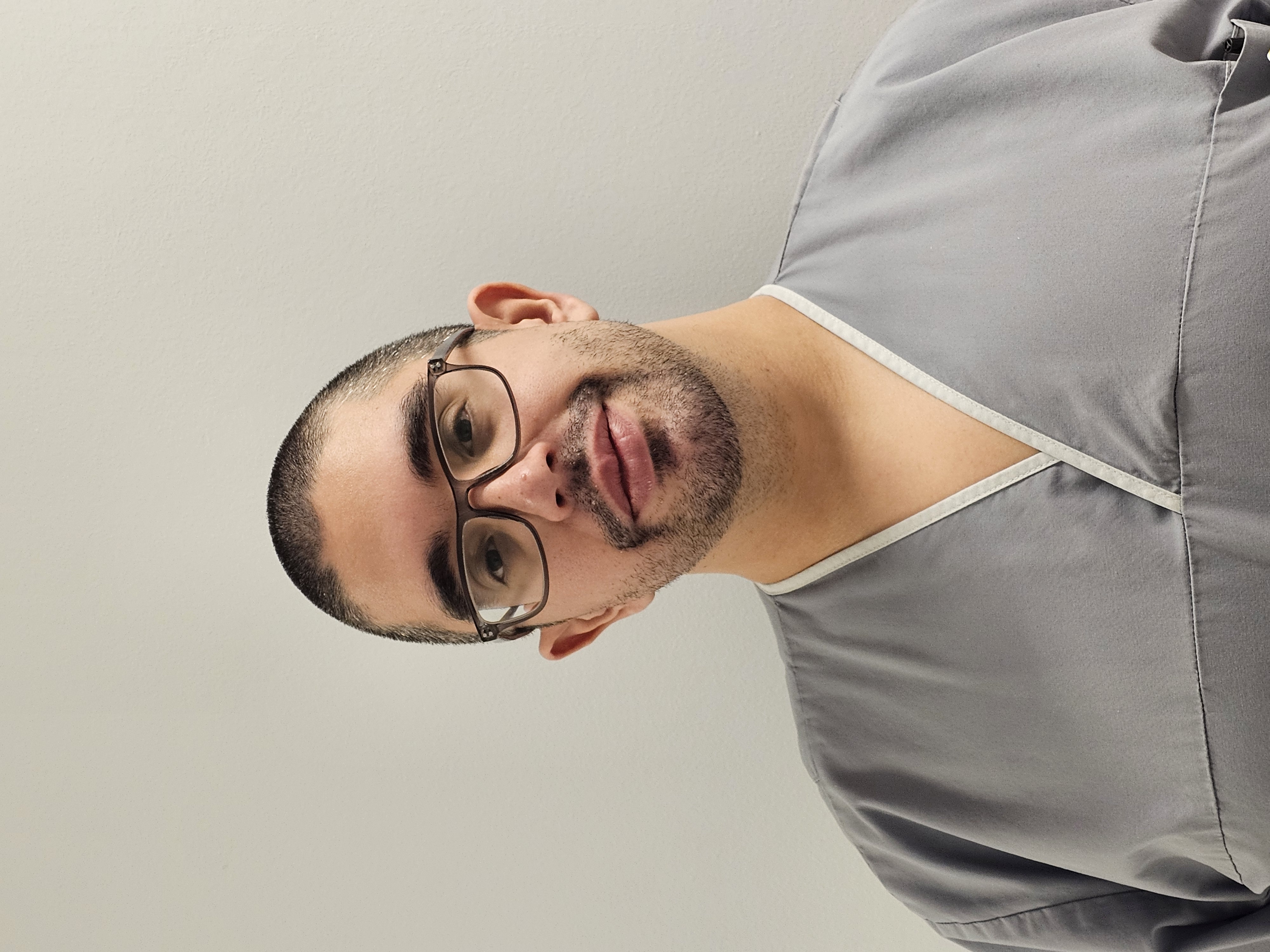Can you describe what you do day-to-day?
I work in the Squire Centre at Royal Brompton Hospital, which is a day case clinic at the hospital for cardiology patients. As a healthcare assistant at the clinic, I see patients at different stages as they prepare for their heart procedures.
The pre-screening stage occurs up to 14 days before a patient’s procedure and is an opportunity for us to check their health ahead of their procedure. We carry out different checks and clinical observations including an electrocardiogram (ECG) to check heart rhythm and electrical activity, swabs to check for antibiotic-resistant bacteria and blood tests. If the patient is coming for a cardiac device change or insertion, under a nurse’s supervision we give them a nasal ointment to prevent bacterial infections.

We also see patients on the day of their procedure. We carry out the tests we usually do during the pre-screening stage, but also other tasks such as inserting a cannula on the patient so medication or a contrast dye can be given. A contrast dye is sometimes given to patients for imaging procedures to enable medical staff to see structures in the body more clearly. We also assist with shaving on areas required for the procedure, and when patients return from their procedure, we help with setting up equipment to monitor them. Finally, we give patients their lunch and a hot beverage after their procedures and more generally help nurses throughout the day.
As a healthcare assistant, I am also responsible for restocking materials needed for both pre-screening and day case patients, ensuring that there is adequate stock at all times. We also liaise with other teams such as the scheduling team to add patients to our electronic health record system, and arrange accommodation for patients who need a place to stay the day before their surgery.
What do you like most about your job?
The best thing about my job is being able to help make patients’ stays more relaxing, even if it's just by giving them someone to speak with. It’s also great to be able to support the nurses and be an extra pair of eyes that can spot things quickly and give us the chance to mitigate risks effectively.
What is the most challenging part of your job?
One of the most challenging parts of my job is following up with various teams to ensure the care we provide is as seamless and efficient as possible. There are a lot of people involved in our patients’ care so it is crucial we have good planning and communication.
What is the best thing a patient has ever said to you?
I remember a lovely piece of feedback from a patient who thanked me for helping to take care of them right from the beginning to the end of their visit with us. They explained how they felt like a person and not a number because I did the simple things of smiling, being kind, listening to their worries and making them laugh which allowed them for a moment to not worry so much about what was going on.
It is really rewarding receiving feedback like this because it shows how the small things really do make a difference for our patients.
Why did you decide to work in healthcare?
Before pursuing healthcare, I previously studied to be a chef and worked in retail when I first came to the UK. I also have experience of taking care of family members with Alzheimer’s disease and dementia who had some problems with mobility. I often helped with various day-to-day tasks such as walking around and helping them take showers. So when speaking with a friend that worked in the hospital, the topic of work and what I could do if I wanted to change my career came about. This was when she introduced me to the position of a healthcare assistant and what it entailed. I thought that with the experience I had, it would be a good opportunity to learn more and use the skills I developed to help other people.
What advice would you give to someone considering a career in the NHS?
I would say that even with stressful days when things don’t always go to plan, what we get in return and what we are able to provide to patients, the impact we can have in someone’s life even for something as small and simple as being kind and giving a smile, I would never go back and do something else. What working in the NHS has done for me and continues to do is no way quantifiable.
